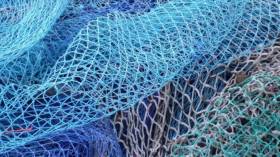Displaying items by tag: Trawling
Marine Minister Announces Public Consultation on Review of Trawling Inside Six-Nautical-Mile Zone and Baselines
Marine Minister Charlie McConalogue has launched a public consultation on fishing with trawls inside the six-nautical-mile zone and the baselines.
Speaking on Tuesday (13 February), Minister McConalogue said: “Five years ago, in December 2018, a transition to a ban on vessels over 18 metres trawling in inshore waters, inside the six-nautical-mile zone and the baselines, was announced following a previous public consultation.
“This ban had a strong support base but was overturned following legal challenge. In view of changes in activity and issues concerning the marine space since then, I think it is important that this issue is reviewed and reflected on in an open, inclusive process.”
As part of the public consultation, a consultation paper setting out potential options and providing information on issues to consider is being made available.
Up-to-date scientific and economic advice from the Marine Institute and Bord Iascaigh Mhara, respectively, on trawling in the waters inside the six-nautical-mile zone is also being published.
The minister added: “I am conscious of the dependence of our inshore fleet, compared to larger vessels, on fishing resources within the six-nautical-mile zone. Other issues that need to be reflected on include balancing the management of our fisheries with the needs of the marine ecosystem but also the changes that have come with Brexit, the energy crisis and the climate crisis.
“The policy context is greatly changed from 2018. I encourage all interested parties to read the consultation documents and to reflect on those in making any submissions.”
The purpose of this consultation is to seek the views of all interested parties on trawling activity inside the six-nautical-mile zone and baselines. All interested parties are encouraged to make a submission.
Details relating to the public consultation and on how to make a submission can be found on Gov.ie. The consultation period closes at 1pm on Friday 12 April.
The Minister for Agriculture, Food and the Marine, Michael Creed today launched a public consultation on trawling within the 6 nautical mile coastal zone. This consultation is taking place after a number of concerns were raised by stakeholders regarding the level of trawling inside the 6nm zone. The topic has been the subject of scientific and economic reports by the Marine Institute (MI) and Bord Iascaigh Mhara (BIM) and preliminary engagement with fisheries representative groups.
The Minister said: “This Government has committed to the development of the inshore sector in the current Programme for a Partnership Government. The programme identifies a number of methods for supporting the sector, such as ensuring smaller inshore boats are given new opportunities for commercial fishing”.
Minister Creed continued: “I want to support new initiatives that will strengthen the economic and social underpinning of our valuable coastal and island communities. This consultation provides an opportunity to examine the case for giving priority access to our inshore vessels within the 6 mile coastal zone and in addition better support the eco-system in inshore waters”.
The Minister has prepared a formal paper, with advice from the MI and BIM, to aid the consultation process. The consultation paper sets out possible measures and their potential impacts.
The Minister concluded by saying “This consultation ensures that the diverse interests of all stakeholders are heard and considered, so that any possible measures introduced will be both fair and balanced”.
The consultation paper entitled ‘Trawling Activity inside the 6 Nautical Mile Zone’, along with referenced reports and analysis, are available at the relevant link on the Public Consultations page of the Department’s website at www.agriculture.gov.ie/customerservice/publicconsultations
The consultation period will run until Monday 11th June 2018.
























































